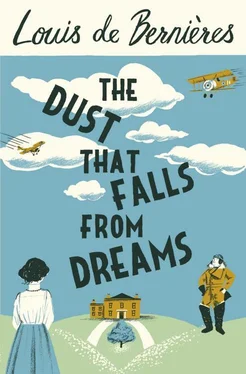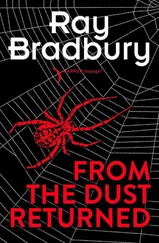‘Madame is in the séance room,’ said Spedegue, saying the word ‘séance’ as if she were handling it with tongs. She did not announce him or show him in
The sound of a cello piece was coming from that very quarter, and Fairhead pushed the door open gently so as not to disturb the music. He stood very still whilst Madame Valentine finished playing, and then coughed politely after she had had a few moments to savour the aura of the finished piece. Suddenly aware that someone was present, she looked round, and rose to her feet. ‘Oh!’ she exclaimed.
‘I am sorry to have disturbed your practice,’ said Captain Fairhead. ‘You do play very beautifully.’
‘You can’t go wrong with “The Swan”,’ said Madame Valentine. ‘It’s not too difficult, and it does carry one away. Sometimes I think I could play it all day and all night. Of course, one does need a pianist, ideally, or one gets very rusty in the timing department.’
‘Have you never thought of playing professionally?’
‘Oh, I did. I was in a quartet, but the other three were men. Passchendaele, Jutland and Cape Helles, I’m afraid. I hardly have the heart to start again. Such lovely boys. Nowadays I just teach.’
‘You teach?’
‘Don’t be surprised. I’m not a professional medium, you know. Just a very good one. On a good day. Do find yourself a place to sit. I expect that Spedegue will bring tea.’
Fairhead settled into a high-backed chair and Madame Valentine did likewise. He hardly recognised her. Gone were the theatrical trappings of mediumship, and she was dressed entirely like any other large middle-class woman with respectable acquaintances and aspirations.
‘I barely recognised you,’ said Fairhead.
‘One has to dress up,’ replied Madame Valentine. ‘Butchers butcher better in their aprons, soldiers march more smartly in uniform, and no one takes policemen in plain clothes at all seriously. I see you have your dog collar on this time.’
‘I do.’
‘No doubt you know what I mean.’
‘My fiancée says it’s just a normal collar put on backwards. It does seem to have an effect, though, not least on me.’
Spedegue entered with a rickety wooden trolley covered with an embroidered cloth, upon which she had already spilled a few drops of tea. There was a plate of Shrewsbury biscuits which Fairhead soon discovered to be soft.
He produced a small brown paper bag from the inside of his jacket, and took out a photograph, which he handed to Madame Valentine. It showed a young woman smiling and waving at the camera. ‘How did you do this?’ he asked.
‘Who is it?’
‘My little sister. She was killed in a Zeppelin raid.’
‘I don’t know anything about it. What are you asking exactly?’
‘One of the ladies who came here with me had a camera in her bag. When she developed the film she found this picture. It is unmistakably my sister.’
‘Gracious,’ said Madame Valentine. ‘And what’s this? There’s something behind her that looks very like an obelisk.’
‘That,’ replied Fairhead ‘is, also unmistakably, the obelisk of a large and impressive grave a few yards from hers. Major Goodhorn, lawyer and Territorial Army officer.’
‘Gracious,’ said Madame Valentine again.
‘I am thinking of submitting it to the Society of Psychical Research. Would you cooperate if I did?’
‘Cooperate? In what way? I was quite unaware that anything like this had happened.’
‘Do think about it,’ said Fairhead. He paused. ‘But that isn’t the reason I’m here.’
‘No?’
‘I want to ask you about the afterlife.’
‘You’re the clergyman,’ replied Madame Valentine drily. ‘Surely you must be the expert?’
‘I suspect that things may be other than the average Christian supposes. I was at the front for several years. I saw many things. Heard many stories. I have for some time been in doubt. And the odd thing is, the Bible says practically nothing about it. The Jews thought you gibbered away in a place called Sheol, and the more reprehensible souls smouldered on a rubbish dump outside Jerusalem, called Gehenna. The Achaean Greeks apparently thought that you wandered about in a diminished state, with absolutely nothing to do.’
‘And you want to know what really happens? You want to know where your sister is?’
‘I do. And all the dead boys.’
‘All I can tell you is what I think. I have no proofs except circumstantial ones.’
‘Go on,’ he said quietly.
‘What I think is that we do survive death in some form, and that we remain almost exactly as we were. A man who smoked a pipe when he was here smokes a pipe in the next world. I don’t know how long the afterlife lasts, or if there are other deaths to die later or if any of our deaths are final.’
‘One assumes that the hereafter is eternal,’ said Fairhead.
‘There is no reason to,’ she replied. ‘People assume that one becomes omniscient as well, but I have never encountered a spirit who knew much more than when he was alive. Death doesn’t seem much of an improvement in most cases. I have encountered ones who were extraordinarily foul-mouthed. It doesn’t even make you polite.’
‘Heaven and Hell?’
‘Probably not. I think there are levels of existence that you can ascend or descend, like a ladder. Once someone goes a long way up, they can no longer communicate with us. It’s like trying to talk through thick glass. There are those who are very sad, and those who go on quite jauntily. And I often suspect that there are many kinds of entities one has to deal with, everything from mere scamps and scallywags right up to creatures as angelic as angels. It’s the scallywags who infest the drawing rooms of planchette players.’
‘And what about coming back again?’
‘Reincarnation? I have never come across it, but there are those who have, it seems. My opinion is that it is optional. A choice one can make.’
‘Really?’
‘It’s only an opinion.’
Fairhead sat in silence and sipped his tea. It was tepid and oily, and Spedegue had obviously made it with hot water from the tap. He wondered again what the bond was between the two women.
‘She is a poor soul who needs caring for,’ said Madame Valentine suddenly. ‘Her mother was a complete brute who drove her father to suicide. Apprently she was exceptionally violent and he was too much of a gentleman to defend himself.’
‘Who?’
‘Spedegue. You asked me about her.’
‘No, I didn’t. I was just thinking about her.’
‘Oh, I must have picked up on it,’ said Madame Valentine matter-of-factly. ‘She’s utterly hopeless as a servant.’
‘You’re telepathic, then?’
‘I can’t do it on purpose.’
‘You’re a most interesting woman,’ said Fairhead. ‘What do the dead say about the afterlife?’
‘Very little. It’s as if they’re not allowed to. They mainly want to say that they’re all right. Sometimes they want to tell you where to find something. Like a key. Or a will. I sometimes fear that the hereafter is extraordinarily banal. I did come across a spirit who said that she’d seen Jesus.’
Fairhead perked up, reassured. ‘Really?’
‘But she might well have been mad or deluded,’ said Madame Valentine. ‘She was when she was alive.’
‘Oh,’ said Fairhead, disappointed.
‘I fear I have not enlightened you very much,’ observed Madame Valentine.
He shrugged. ‘One always asks too much.’
‘“Seek and ye shall find,”’ she said, ‘but more importantly, in your case, “Knock, and it shall be opened unto you.”’
‘That’s your advice?’
‘Oh yes, you really should go ahead and give it a try.’
‘You really are extraordinary,’ he said gratefully.
Читать дальше












